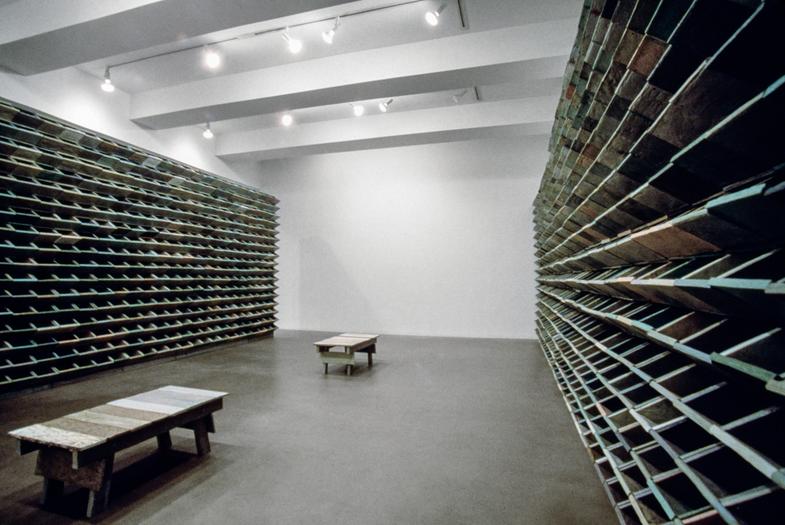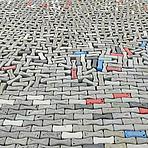Dan Peterman
April 13 – May 18, 1996
Main Gallery
Plastic
So, more than a substance, plastic is the very idea of its infinite transformation; as its everyday name indicates, it is ubiquity made visible. And it is this, in fact, which makes it a miraculous substance: a miracle is always a sudden transformation of nature. Plastic remains impregnated throughout with this wonder: it is less a thing than the trace of a movement.
And as the movement here is almost infinite, transforming the original crystals into a multitude of more and more startling objects, plastic is, all told, a spectacle to be deciphered: the very spectacle of its end-products. At the sight of each terminal form (suitcase, brush, car-body, toy, fabric, tube, basin or film), the mind does not cease from considering the original matter as an enigma. This is because the quick-change artistry of plastic is absolute: it can become buckets as well as jewels. Hence a perpetual amazement, the reverie of man at the sight of the proliferating forms of matter, and the connections he detects between the singular of the origin and the plural of the effects. And this amazement is a pleasurable one, since the scope of the transformations gives man the measure of his power, and since the very itinerary of plastic gives him the euphoria of a prestigious free-wheeling through Nature.
From: Roland Barthes, Mythologies, translated by: Anette Lavers, (Hill and Wang, New York, 1972). Originally published 1957 by Editions du Sevil, Paris

